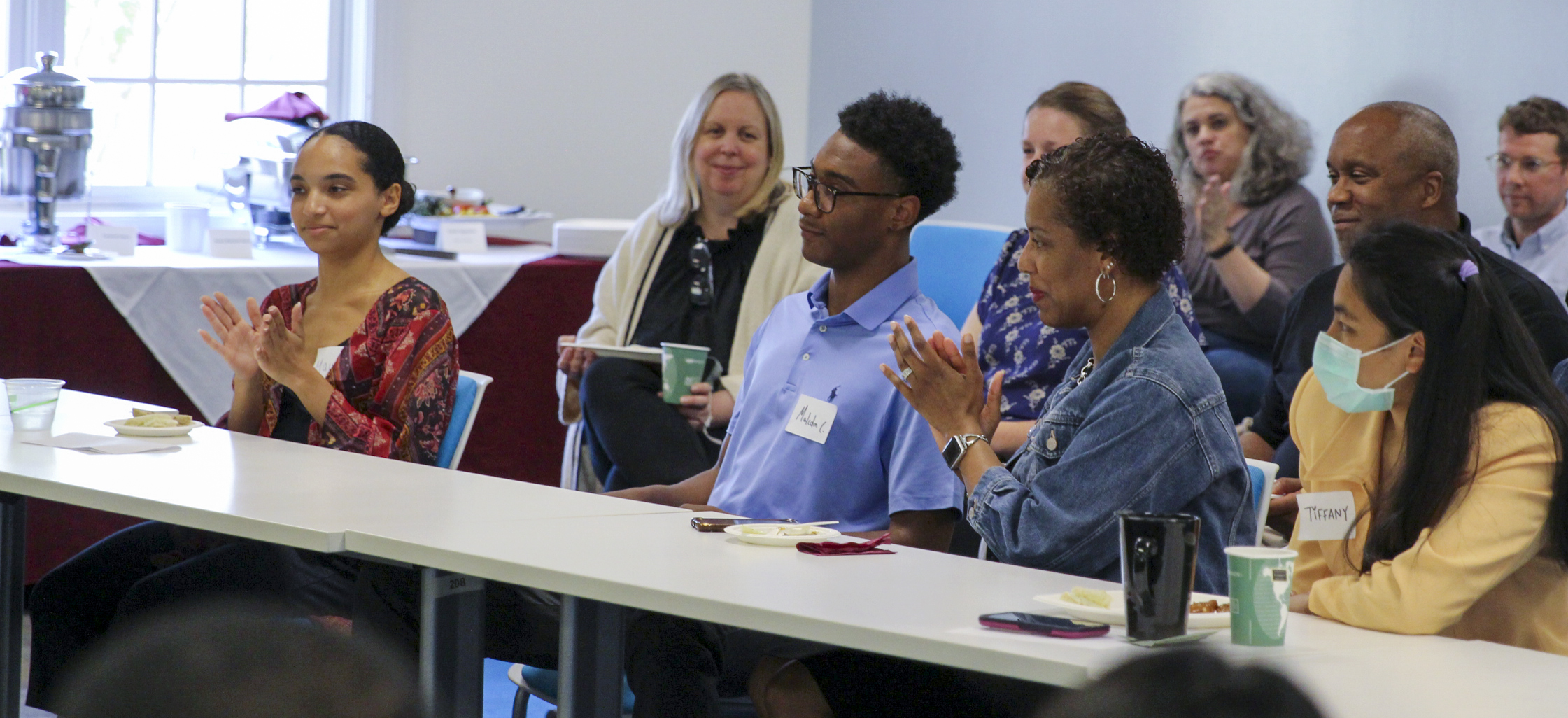Pieces written in the required course ENG 1100, Writing: Argument and Inquiry are eligible to be considered for the annual contest and publication.
A new online journal celebrates exceptional writing by first-year Elon students and emphasizes the impact storytelling can have on the world.
The inaugural edition of “Phoenix Rhetorix” was published earlier this year and includes eight pieces composed in 2020-21 by first-year students in the ENG 1100, Writing: Argument and Inquiry course. ENG 1100 is required as part of Elon’s First-Year Foundations curriculum and is taken by nearly 1,500 undergraduates each year.
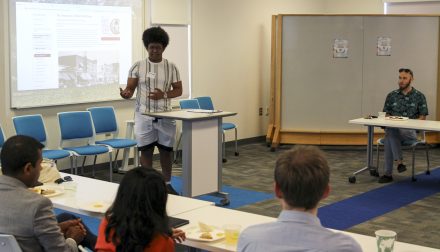
Faculty launched the annual contest and journal last academic year.
Contest winners were Malcolm Capers ’24, Devin Guilbeau ’24, Tiffany Huang ’23, Julia Kearney ’24, Mary Kate McDonald ’24, Caroline Mitchell ’24, Emma Mitchell ’24 and Maya Simmons ’23. Their work includes a podcast about racial disparities in the U.S. justice system, a news article about how a missing child’s race affects law enforcement and media attention, and a narrative essay about the difficulty of belonging at Elon as an interracial American.
Student writers and the editorial team gathered Wednesday, April 13, to present portions of their work and reflect on the writing and editing process.
“Believe it or not, I’m actually an engineering major,” said Guilbeau, author of “The Destruction of Black Wall Street: A Beginner’s Guide.” “Before college, I had no interest in writing or history. I didn’t discover how good I could be until I got to Elon in (Professor of English) Megan Isaac’s class and was able to speak on something I had interest for.”
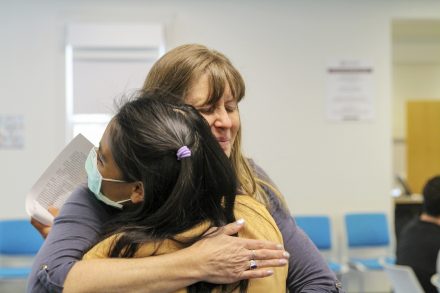
Other pieces originated from complex emotions, such as Capers’ reflection on racism embedded in the criminal justice system and Huang’s essay about feeling separated from Elon communities by being a Taiwanese-American whose mother is Taiwanese-Argentine.
“What immediately impressed me was Tiffany’s willingness to be vulnerable, to express and share a space that was not comfortable and was not a positive interaction and that led to tears. She went there and embraced that. One of the hallmarks of really good writing is to be willing to be vulnerable,” said English instructor Chrissy Stein. “By the end of the piece … she describes wanting to be a role model for others, not just changing herself but changing the world, and that’s what writing is about.”
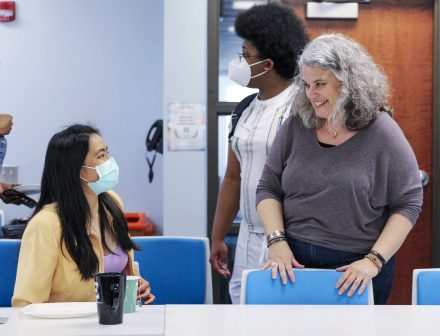
Any piece written in the ENG 1100 course is eligible to be submitted to the competition, with faculty or students themselves able to nominate writing and multimedia works. A panel of faculty editors selects the winners.
“The individuals who contributed most to this inaugural issue are the students themselves, who put in the time, the heart and a whole lot of revisions — including revising multiple times throughout fall 2021, which was a long time after they submitted writing for their classes. I cannot say enough about the commitment of these students who went above and beyond to revise in some cases five times and over the course of months with multiple faculty editors,” said Assistant Professor of English Heather Lindenman, who serves as the journal’s co-editor-in-chief with Assistant Professor of English Travis Maynard.
Students in Maynard’s publishing and editing course assisted in creating the journal and conducting interviews with the authors and faculty, published alongside each piece.
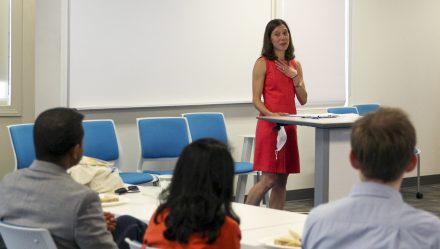
The 2021-22 contest and journal are focused on writing around diversity, equity and inclusion, “with a specific emphasis on untold or retold histories, writing that shares new perspectives, or writing that seeks to counter misinformation or bridge divisions,” editors say on the journal’s website.
The deadline to submit work created in ENG 1100 during Spring 2022 is May 18.



